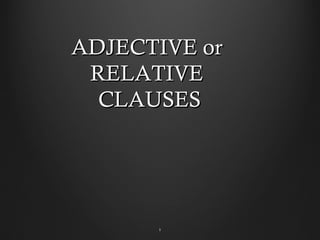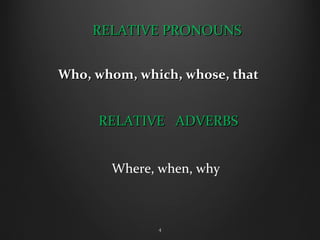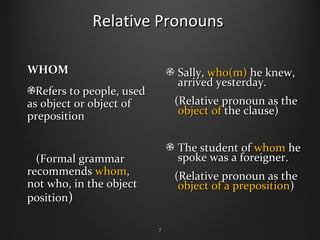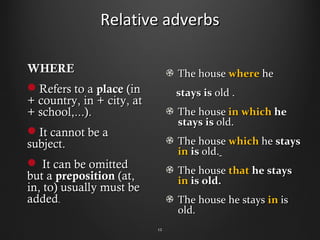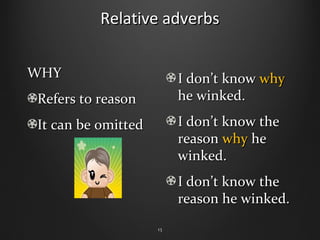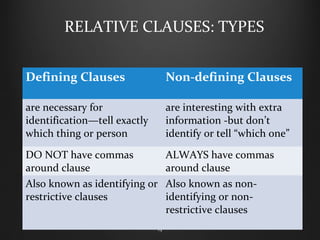The document discusses relative clauses and relative pronouns. It defines relative clauses as dependent clauses that must be joined to independent clauses to describe nouns or pronouns. It notes that relative clauses add details to sentences by functioning as adjectives. It then discusses the different types of relative pronouns (who, whom, which, whose, that) and relative adverbs (where, when, why). It explains how these pronouns and adverbs are used and provides examples. It also distinguishes between defining and non-defining relative clauses.
